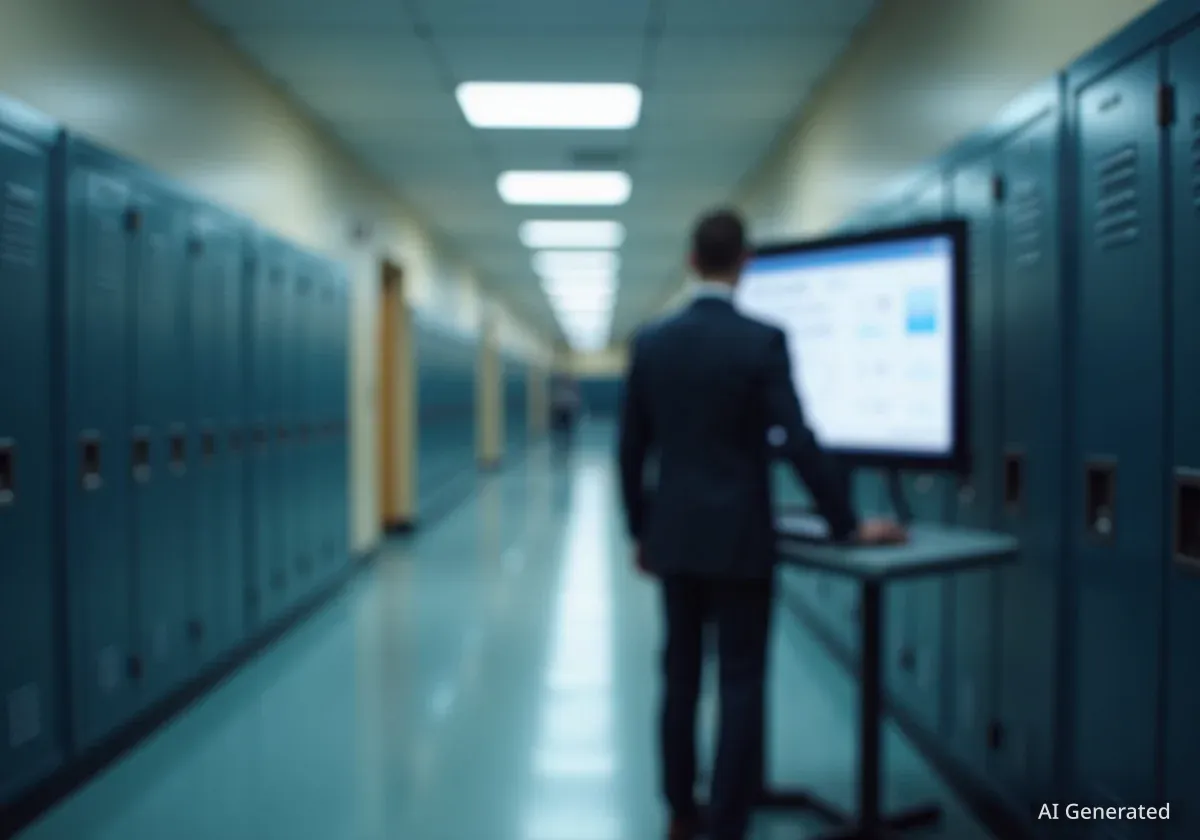The San Diego Unified School District has implemented a new, mandatory electronic system for documenting all student searches across its more than 200 schools. This significant policy change comes after a parent discovered that his son's high school was not keeping records of searches, a violation of the district's own rules.
Key Takeaways
- San Diego Unified has launched a new electronic form to track every student search district-wide.
- The change was prompted by a parent's complaint after his son was searched without any official record being created.
- An investigation revealed the district did not know if its schools were following the previous policy to document searches.
- The new system requires administrators to record the reason for a search, what was found, and the student's demographic information.
Parent's Inquiry Exposes Policy Failure
The catalyst for the district-wide change was Michael Stewart, a parent and retired Chula Vista police officer. His concerns began in the spring when his son, a student at Patrick Henry High School, was searched by the principal.
Stewart said his son had gone to his car in the parking lot during lunch to drop off a ceramics project, which is against school rules. Upon his return to the building, the principal stopped and searched him. Nothing illegal or prohibited was found.
"I just didn’t feel good about this," Stewart stated. "He’d never been disciplined for anything formally... So it was like, ‘Oh, I wonder what led to a search of my son?’”
When Stewart requested records of the search, he was told none existed. Further inquiries revealed a systemic issue: the district was not enforcing its own policy that required all student searches to be documented. "It’s a great injustice to the students at the school, and to the families, just not knowing, ‘Hey, what are they doing, when are they doing it, and how is it helping our students?’” Stewart added.
Legal Standards for School Searches
The Fourth Amendment of the U.S. Constitution protects individuals from unreasonable searches and seizures. While students have these rights at school, the legal standard is different. School officials do not need probable cause, but they must have reasonable suspicion to conduct a search. This means they need a specific, justifiable reason to believe a student has violated a law or school rule.
Student Rights and District Rules
According to civil rights attorney Lauren Mellano, the requirement for reasonable suspicion is a crucial protection for students. She explained that school staff cannot search a student based on a simple hunch or curiosity.
"Making sure there are real bases for these searches is really important," Mellano said. "There would need to be a reason to believe that a backpack has drugs in it."
San Diego Unified’s own policy explicitly stated that officials will, “Document or keep records on the basis for the search.” However, when NBC 7 Investigates requested these records from Patrick Henry High School, the district confirmed that such documents were not created. Instead, they provided a database of students who were suspended after contraband was found, which lacked details about the searches themselves.
Consent and Student Rights
Attorney Lauren Mellano noted that students can unknowingly waive their Fourth Amendment rights if they consent to a search. She advises students to verbally state that they do not consent. "Stating affirmatively that they object to a search... can be very helpful. Even if an administrator goes forward with that search, it would at least protect them legally later in a court," she explained.
District Admits Lack of Oversight
Farshad Talebi, who leads the district’s Office of Investigations, Compliance, and Accountability, acknowledged the gap in record-keeping. He stated there was an expectation for administrators to document searches but admitted the district did not know if this was happening consistently.
"I didn’t do an audit of every school and how they’re documenting," Talebi said. "So that’s where I don’t necessarily feel comfortable saying some sites were doing it right, some sites were not doing it right."
Talebi suggested that, anecdotally, parents were more focused on safety issues like keeping weapons and drugs off campus, and that student searches had not been a "primary concern." He initially asked parents to trust school leadership to follow policies, a statement made before the new tracking system was developed.
A New System for Accountability
In response to Stewart's complaint, the San Diego Unified School District has now created a standardized, mandatory reporting system. The new process requires principals and other administrators to complete an electronic form for every student search conducted.
This form captures crucial data points that were previously missing, including:
- The specific reason for the search.
- The name of the staff member who conducted it.
- A description of what, if any, contraband was found.
- The student’s ethnicity and gender.
This ensures that a record is created regardless of the search's outcome. Stewart called the new system a step in the right direction but believes the district should go further. He has asked for the collected data to be analyzed annually and made public, a request the district has declined.
"I know they can do better," Stewart said. "They should do better."
Additionally, the district confirmed it does not have a written policy that mandates parental notification after a student is searched. A spokesperson said administrators are expected to do so, but Talebi stated there are no current plans to add this requirement to the official policy.





